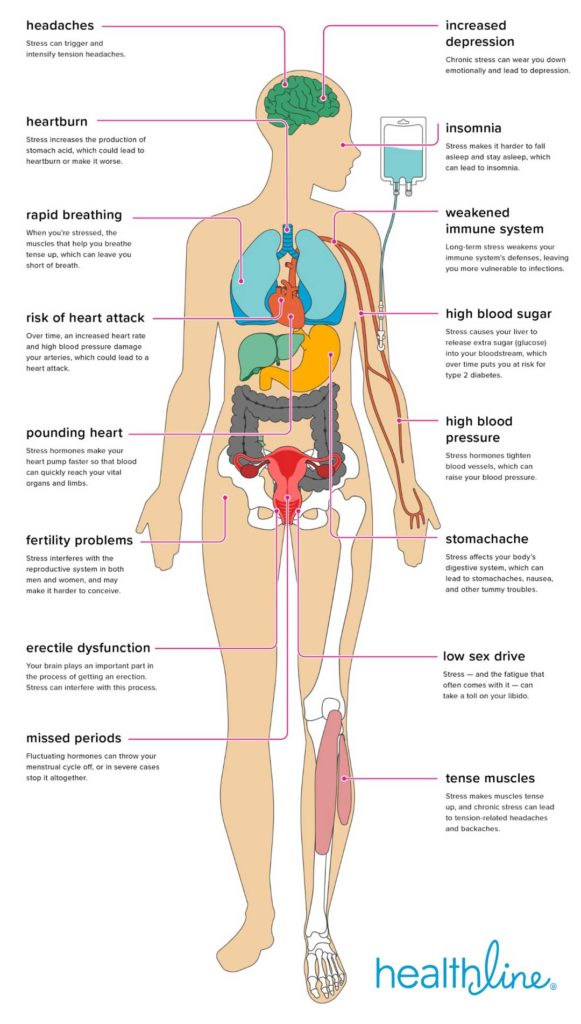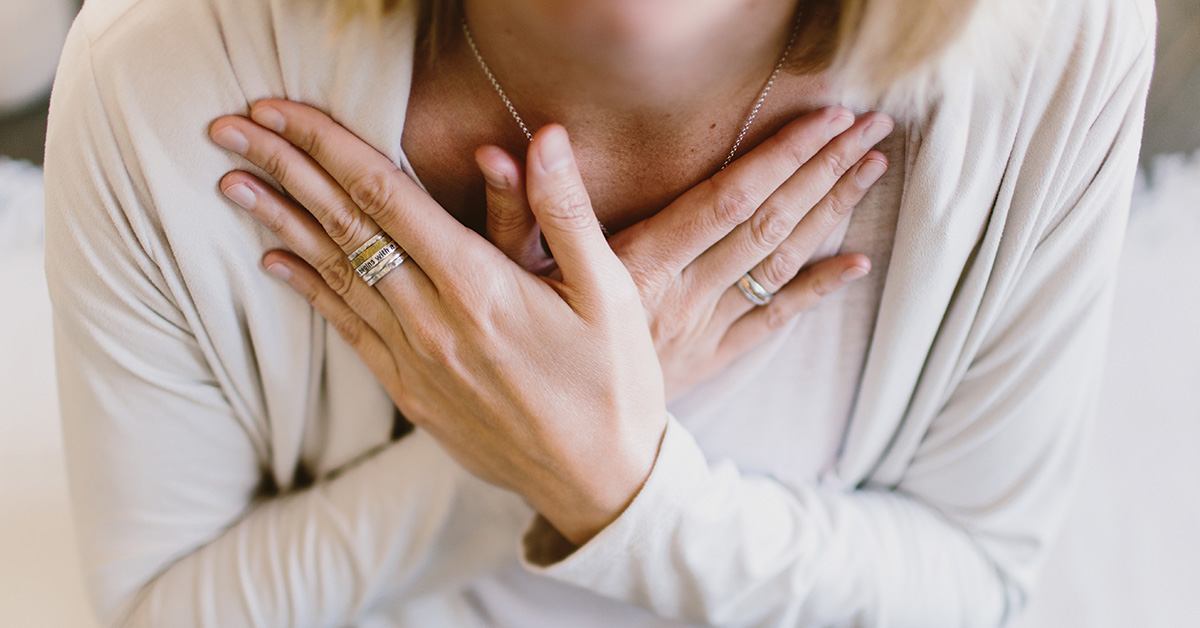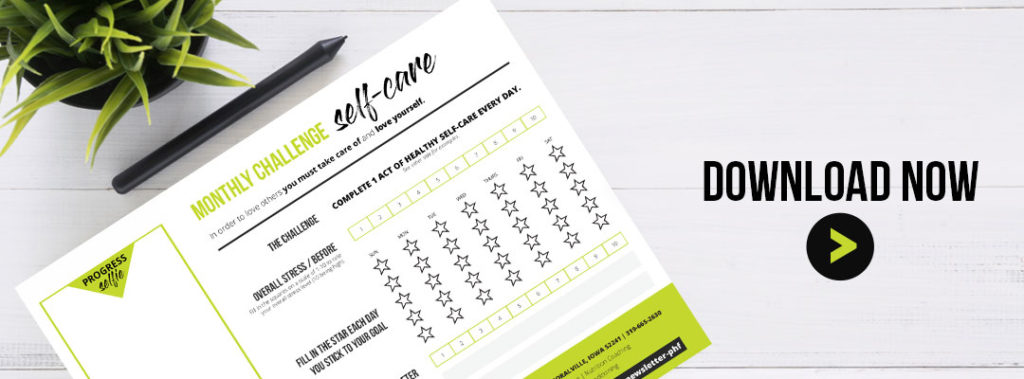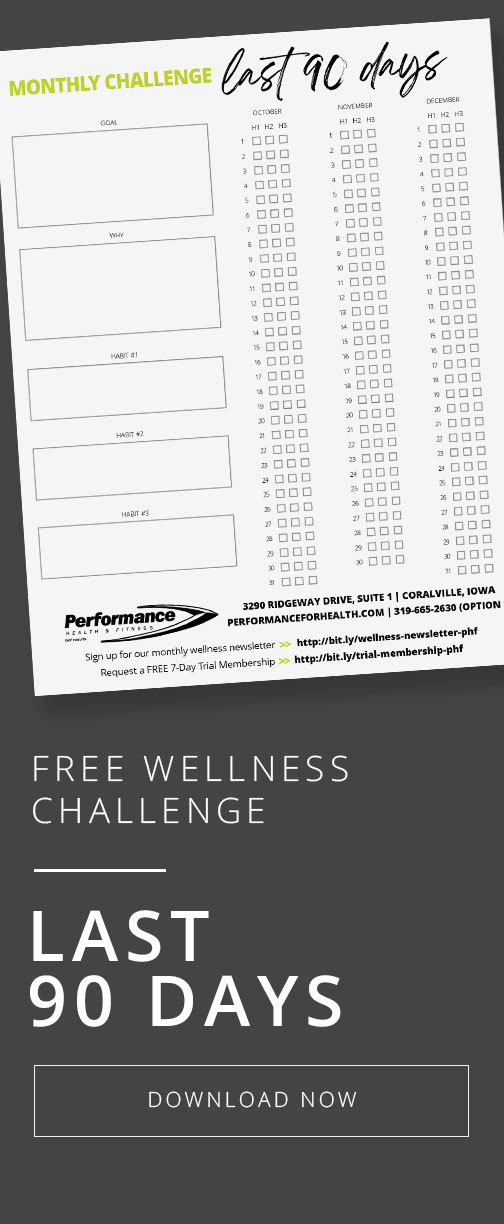As I was reading the book, The Paleo Cure by Chris Kresser, the author was talking about the nutritional side to the Paleo theory but also asked other lifestyle questions such as when was the last time that you laughed? Spent time outside? Or spent time with loved ones or just by yourself? These are questions that seem so easy to answer but when put through the exercise, a lot of us realize we tend to put others before ourselves. Does that sound like you?
When we stop taking care of ourselves we become stressed, unhappy, overwhelmed and just make it through day-to-day responsibilities without really enjoying it. Does that sound like a life you would want to live?
What is Self-Care?
The definition of self-care is taking action towards protecting one’s overall well-being and happiness. There are many healthy ways to take care of yourself but there are also some unhealthy ways.
Remember that wellness wheel that I showed you all last month? If not, take a moment to read this blog post on healthy and S.M.A.R.T. wellness goals. All of those aspects of health are ways in which you can take care of yourself on a daily basis. Daily reading, journaling, spiritual practices, meditation, staying on budget, exercise and movement, healthy nutrition and hydration, positive thinking/affirmations or social gatherings are great examples of how you can do something for yourself to decrease your stress and improve your happiness.
Unhealthy ways that people choose to relieve their stress include smoking, drinking to excess, increased caffeine consumption, negative self-talk, poor nutrition, emotional eating, overspending, etc.
Developing healthier ways to cope with stress will help to improve your mood, your immune system, your body composition, decrease your risks of developing chronic illness and diseases later in life, and keep you on budget to decrease financial stress.
In short: coping with your stress in healthy ways will make you healthier and happier to be able to live a longer, higher quality of life.
External Stress
External stress can wreak havoc on your body internally – which explains why there is such a push for people to start learning healthy coping mechanisms to decrease their stress.
Stress can contribute to several emotional and physical health issues over time. Examples are autoimmune diseases such as rheumatoid arthritis, cardiovascular disease, depression, headaches, immunosuppression which can lead to infections, GERD and even Parkinson’s Disease.
Stress causes disruptions in your body’s natural function, which makes your organs work twice as hard by stimulating the fight or flight response. This type of response is to be only used when we are in danger and for short spurts of time rather than a longer duration. Our heart starts beating faster, our blood pressure skyrockets, our digestive system doesn’t absorb the nutrients it needs because food moves so quickly in our GI system, our muscles tense up and our breathing starts to become rapid. It requires a lot of energy in order to have your body be in this overdrive state – which is why we tend to feel lethargic or tired after a stressful day. I am exhausted just by typing all of that out! Can you imagine how tired your body would be to do all of that at once?

The Effects of Stress on Your Body Diagram / Source: https://www.healthline.com/health/stress/effects-on-body
Common symptoms that we experience when we are stressed include mental fog, becoming easily frustrated/angry, irritable, overwhelmed, tremors, stuttering, headaches, lightheadedness, social isolation, the need for retail therapy, constant tiredness, and adrenal fatigue.
Ultimately we tend to make bad decisions when we are stressed and it puts our body into overdrive, making it impossible to get anything done or to enjoy our lives to the fullest. Each of us experiences some type of stress in our lives and it can cause a positive or negative effect on our bodies.
Types of Stress
There are three types of stress: Acute Stress, Episodic Acute Stress, and Chronic Stress.
Acute Stress is usually short-term and can be a response when someone has to give a presentation, go into a meeting with a boss or have a difficult conversation with a loved one. The common emotional/physical symptoms when stressed are experienced either before, during or may linger after the event in which it takes place but people should feel relief pretty quickly.
Episodic Acute Stress is when people experience multiple bouts of acute stress over a short period of time. People with Type A personalities, who are unorganized, procrastinators or constantly rushed are the people who usually suffer from episodic acute stress.
Chronic Stress is when people experience stress over long periods of time. These are situations in which people feel stuck and have trouble seeing the light at the end of the tunnel. Common situations are an unhappy marriage, financial issues, or not liking your job. This is the type of stress that can contribute to chronic illnesses and disease.
Self-Reflection
Take a moment to think about what causes you stress. Can you pinpoint what your common stress triggers are?
What steps can you take in order to decrease your stress in these situations?
- Could you buy an organizer to manage your time better and fit in daily self-care?
- Could you make it a priority on a Sunday to meal prep your week’s worth of food – so that you can have better nutrition during the week?
- Could you find time to cruise Pinterest or Google and look up positive quotes to post on your mirror – to help change your way of thinking?
- Could you come up with a budget that can get your finances in line?
Whatever it may be, think about it, write it out, and put it into action so you can take your well-being into your own hands and be a happier person.
Stress Management
Stress management is such a huge topic when I am a health coach and personal trainer. People come to me with questions about why they aren’t seeing results when they are consistent with their workouts and eat healthy. My question to them is, how are your stress levels? Someone may not realize they have issues with coping with stress because “isn’t that just a normal thing with everyone and we just have to live with it?”
Well yes… but having the ability to leave work at work or developing healthy coping mechanisms to deal with any of your stressors can help you to achieve anything that you set your desires to.
Daily Meditation
Daily meditation practices have been on the rise to help improve the health of the mind, body, and soul. This is a part of your emotional, physical, and spiritual health that may be off-balance to give you the time to really pay attention to your body while you are clearing your mind. The benefits of daily meditation include reduced stress, blood pressure, muscle tension, anxiety, depression, insomnia, ulcers and improves the immune system to name a few.
For additional information on the benefits of daily meditation, I recommend reading this article from longevity >>
If you are one that needs help with a guided meditation practice to help to unwind there are a couple of apps out there that I would recommend called Headspace and Calm. I personally use the calm app because they include meditative music along with a guided meditation on various subjects which helps me to clear my mind and relax. I encourage you to use both to see which one you prefer and to add in a 5-10 daily meditation to help you towards your health goals.
Self-Care Challenge
Our next wellness challenge is for you to reflect on what helps you to distress and to incorporate that on a daily basis. I want you to think about how you feel now on a scale of 1-10 and come up with what you are going to incorporate on a daily basis. This could be the same thing every day or it could be different things. The best part is that you have a choice to incorporate anything. Do it every day for a month then reflect when you’re done and rate your stress levels. You could commit to a 5-minute daily meditation, or start a daily journal routine! Download our challenge worksheet and work through the prep on page 2. You’ll be able to read through examples of healthy self-care strategies and decide ahead of time what you will commit to trying.
Remember in order to love others you must take care of and love yourself.
Want to take these suggestions and put them into practice? Participate in our FREE “Self-Care Challenge” >>
We’re excited to commit to our health and wellness, and I hope you are too. Please join us in this challenge – we cannot wait to hear how much self-care will improve your overall health and wellness!
///
Want to learn more about Personal Training, Health Coaching, Nutrition Coaching, TEAM Training, or Senior Fitness/Senior Personal Training at Performance Health & Fitness? Sign up for a FREE 30-Minute Strategy Session with a certified personal trainer and we'll help you find the resources and information needed to reach your personal goals.



